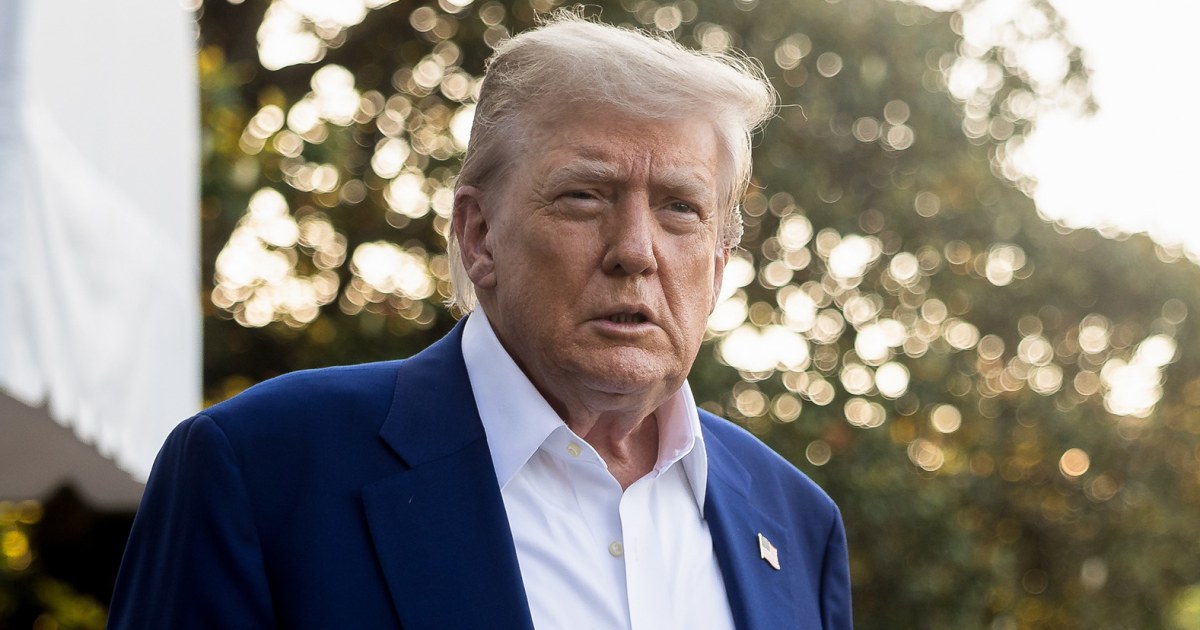Trump Takes the Stage at NATO Amid Domestic GOP Healthcare Turmoil; Cuomo Yields to Mamdani in NYC Primary Drama

In a day marked by geopolitical posturing and domestic political upheaval, President Donald Trump took the stage at the NATO summit, casting his familiar shadow over the international congregation. His speech, a mélange of bravado and grievance, was delivered against the backdrop of a United States grappling with its own internal discord. Meanwhile, in the bustling heart of New York City, a political drama unfolded as Andrew Cuomo conceded defeat to Zohran Mamdani in the Democratic primary for mayor, signaling a seismic shift in the city's political landscape.
As the world watched Trump’s address, Senate GOP leaders were embroiled in a last-ditch effort to quell a brewing storm within their ranks. The source of the turmoil? A sweeping domestic policy bill with contentious Medicaid provisions that had several Republican senators on edge, fearing the potential repercussions for their states. Senate Majority Leader John Thune, R-S.D., in a candid conversation with NBC News, revealed, “We’re working on a solution for rural hospitals,” a statement that underscored the urgency and complexity of the situation. Thune’s assurance that progress was being made offered a glimmer of hope to those concerned about the bill’s implications.
Central to this legislative maelstrom is a draft proposal from the Senate Finance Committee, the body wielding jurisdiction over Medicaid. The proposal, according to insiders privy to its intricacies, aims to establish a $15 billion fund dedicated to rural hospitals and healthcare providers. This fund, while potentially alleviating some concerns, would inevitably inflate the overall cost of the bill, adding another layer of complexity to the already fraught negotiations.
The stakes of this legislative battle are high, as the GOP seeks to balance fiscal responsibility with the healthcare needs of rural America—a constituency that played a pivotal role in Trump’s electoral base. The proposed fund represents a critical lifeline for rural hospitals, which have long struggled with financial viability. Yet, the increased expenditure poses a challenge to the party’s fiscal hawks, who are wary of ballooning the national deficit.
As these domestic challenges simmer, Trump’s presence at the NATO summit serves as a reminder of the President’s enduring influence on both the national and international stages. His speech, characterized by its characteristic blend of assertiveness and nostalgia, highlighted his ongoing relevance in the political arena, even as new leaders emerge and old alliances are tested.
In New York, the political landscape is undergoing its own transformation. Andrew Cuomo’s concession to Zohran Mamdani in the mayoral primary marks a significant shift in the city’s political dynamics. Mamdani’s victory, driven by a progressive agenda, reflects a growing appetite for change among New Yorkers, echoing broader national trends toward more progressive policies.
As the dust settles from these pivotal events, the implications for both domestic policy and international relations remain profound. The GOP’s internal struggles over healthcare policy, Trump’s enduring influence, and the shifting political tides in New York City all underscore the dynamic and often unpredictable nature of contemporary politics. The coming weeks will undoubtedly reveal how these narratives will continue to unfold, shaping the future of both the United States and its role on the world stage.
🔮 Fortellr Predicts
Confidence: 75%
In the present scenario, the Trump administration faces a challenge balancing international commitments at NATO with domestic healthcare policy reforms. The GOP's focus on addressing Medicaid provisions aims to mitigate concerns from within its ranks, particularly concerning the Rural Hospital Fund's increased costs. Historically, the interplay between foreign policy and domestic reform, as seen during Lyndon B. Johnson's era, indicates potential fracturing if domestic needs are not met. Trump’s aggressive stance on federal spending and regulatory efficiency places additional pressure on Republicans to secure party cohesion and pass healthcare reforms that adequately support rural healthcare without alienating key GOP constituencies. The presence of a $15 billion fund as part of the Senate Finance Committee’s proposal is likely to become a focal point for negotiations, where achieving a balance between fiscal responsibility and addressing healthcare concerns becomes paramount. Stakeholders such as rural healthcare providers, state governors, and healthcare lobbyists will play crucial roles, potentially aligning with moderate Republicans to pressure for policy adaptation. This decision-making will unfold amid heightened political activity and media scrutiny at the 2025 primary elections, influencing candidate positions and public rhetoric. Therefore, there will be an urgent legislative push to finalize and reconcile the domestic bill’s provisions before it impacts the GOP’s political standing and Trump's administration's effectiveness in international diplomacy.